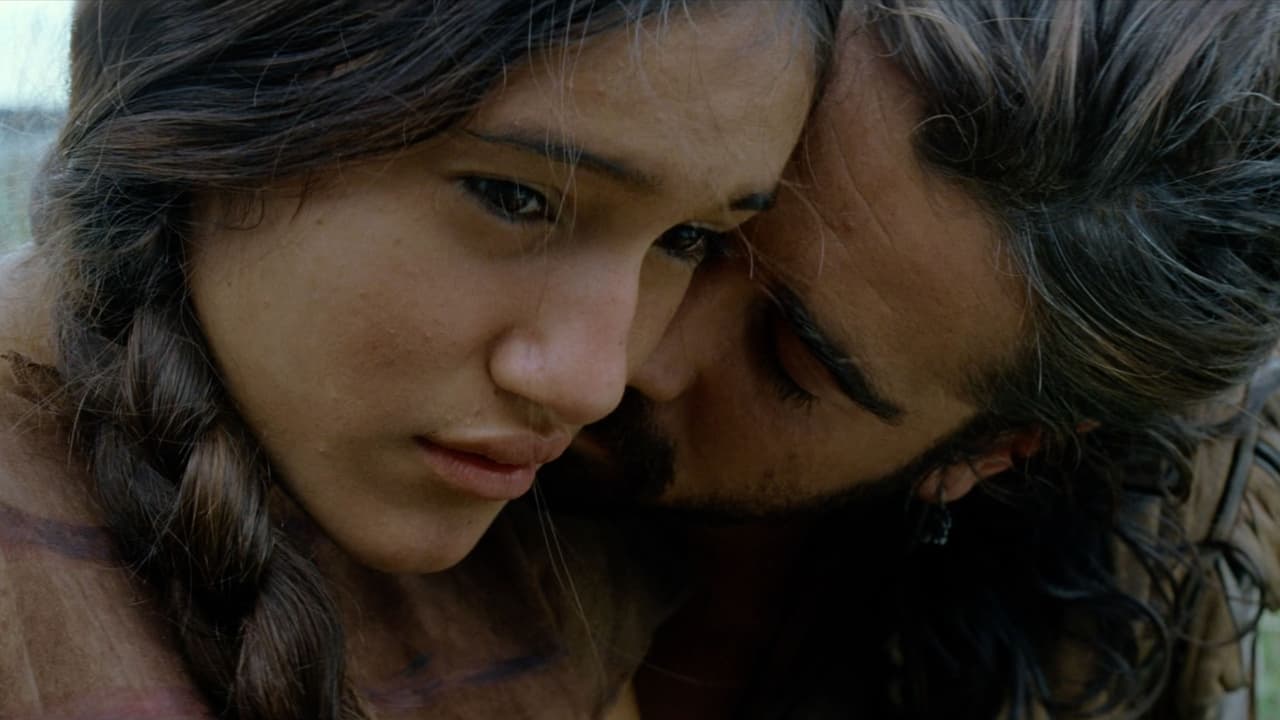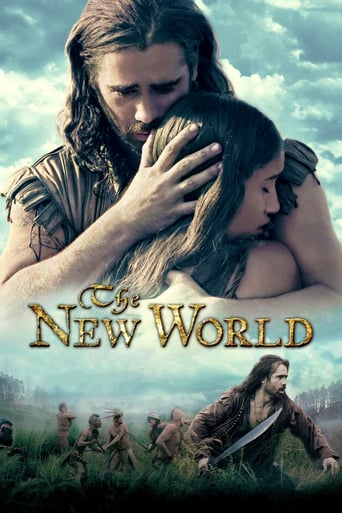

Wow! This is a really beautiful film. Half way through it I contemplated turning it off in fear of it falling into cliché of mindless violence, and this way holding on to the grace it portrayed. But to my surprise it carries it's beauty right to the end. This is a masterpiece of love and adventure; in it's content no piece of it is out of place or lacking necessity. I am just so grateful to have seen this!
... View MoreI really liked this movie a lot. First off, this is an "art-house movie". Most movies done like this are rarely given a blockbuster size budget to make, but this one did. All the performances are excellent, the cinematography is astounding, and although it may seem a bit slow at times, its perfect. Yes, there probably was some historical inaccuracies. But with all the mystery surrounding the relationship between Capt. Smith and ole' Poky, its a perfect opportunity for an interpreted story. I've seen this movie on two separate occasions, sober...and high. When I was high this movie made me cry...it did.
... View More2005's THE NEW WORLD – a retelling of the Pocahontas story – has all the trappings of a masterpiece, sharing the evocative score and magnificent camera-work of Terrence Malick's previous film, THE THIN RED LINE. Unfortunately it's a flawed masterpiece, one that suffers from the director's penchant for long scenes that verge on boredom, as characters wander in the forests and communicate without dialogue. An hour could have easily been cut from the beginning of this film to make it better paced but we're left with moments of emptiness that test the viewer's patience.The good news is that, once Colin Farrell is out of the way, the film picks up pace and gets on with telling the actual story. In this respect the last hour of the film is by far the best. And speaking of Farrell, it's fair to say that he's definitely the worst thing in the movie; his Irish accent recurs throughout the film despite his best efforts to disguise it, and he fails to invest his character with any kind of depth. Even worse, no effort is made to hide his tattoos, which the English didn't wear until the mid-18th century. Far better is Q'Orianka Kilcher as Pocahontas; she's lovely and her spirited character is a delight. There are many supporting actors who put in VERY good performances – particularly Christian Bale, as brilliant as ever, and a little-seen Christopher Plummer as the ship's captain.The film does well to put across a feeling of how life was for both the Native Americans and the settlers and the authenticity never comes into question. But action fans will be disappointed in the lack of battle – the one we do see is over and done with as quick as you like, and Malick is more interested in shooting the trees. Things end on a high with a particularly poignant and moving climax, and it's a shame the rest of the film never reaches this level. When Farrell's on screen, it's pretty dull; when he's off it, it's pretty decent.
... View MoreCaptain John Smith and his men are weary, starving, and outnumbered during the early days of Jamestown, but Smith has more on his mind than survival. He also seems uninterested in higher walls and deeper mines, yet the men insist that he preside over the colony. While his superiors believe he has the makings of a great leader, I feel it's the dreamer, not the leader, in Smith that gets Pocahontas' attention. So the well-known legend goes that she throws herself on his lap and insists his life be spared at the moment her tribe is about to execute him. I'd say the rest is history, but as far as Smith and Pocahontas are concerned the rest is fiction. Pocahontas may have in fact pardoned him from execution, but in real life they were never a couple. No matter, though. We like the story of Pocahontas and John Smith sharing something original and wondrous, teaching each other the ways of the East and the West, becoming one. Suppose our nation had evolved that way.The New World wants us to suppose that the two of them may have been in love, or at least dreamed that they were for a time. Or maybe they both just dreamed, but dreamed together. It struck me how right Malick was for this story, because of his ability to evoke wonder. He reminded me that the founding of Jamestown, while grotesque for the founders, must have been magical for some of the Powhatan tribe. So magical that of course it was a ten year old girl who was best able to really believe it, and to keep up with it. The rest could only gawk, and commence killing each other as they struggled to grasp what was going on.There is a brief scene where Smith invites a tribesman into the fort to let him look around. As the warrior wanders about, the colonists ready their weapons. But Smith assures them that he's harmless. 'Mad,' he says. The Powhatan indeed has a crazed look in his eyes, but I questioned if he was in fact crazy. It could be that he simply displayed bewilderment commensurate with how astonishing the arrival of the English must have been. I certainly can only begin to imagine being a Powhatan and seeing massive sailing vessels emerge out of the mist. Were they floating islands? And what about the masts? Were they animal skins? What animal was so large that skinning it yielded an entire mast? And weapons from what sorts of trees did the English whittle rifles? What was armor made from? Silver tree bark? What did it feel like to run through a forest of of silver trees? And if the trees were silver, then what was the grass like, in that distant land they called England?For most of the English, though, discovering the Powhatans must have been a far less interesting experience, I daresay. The early settlers were workers hired to extract resources and create trading opportunity, not unlike ditch diggers paid by a big box corporation at the outskirts of a suburb. What interests me is the rift in perspective between the one who's there with a specific mission in mind, and the other who was there already, and is now, all too suddenly, witnessing the arrival of aliens more great and terrible than the imagination could have prepared them for.So it was the Indians, not the settlers, whose imaginations were open-ended. That's why Pocahontas played the part she did in American and English history. Being a ten year old princess, she was simply the most open to the English not as a business partner or a threat, but a culture, a people, a person because it is our awareness that allows us to dream. I recently read an article about the regrets of the dying. According to the nurse who recorded the most common laments, the number one regret of patients was that they lived the life expected of them, not a life true to their self. Expectations can enhance, but also cloud experience because subjectivity is both powerful and precarious. The motivations we carry around with us can be our friend or our enemy. For the English, motivation was a blinder.Maybe this belief of mine is why I tend to live spontaneously. Planning isn't a big part of my life. But I find that my experiences are most vivid when I don't know what's coming next. Maybe this is why vacations are stressful for the parents, magical for the children. Controlling what came next was Smith's job, and it distracted him so much that he failed to see what he had.So what did he have, other than a lucrative investment? In my opinion, the English had an opportunity to create something truly new. Not a new version of England, but an original nation. They had an ancient civilization there to compliment their own. They had the potential to grow and evolve with the Indians the way that differing tribes had learned to coexist in flux with one another over centuries. Had both sides, the natives and the aliens, just been able to keep their fear, greed, and pride in check, the two cultures might have found themselves in love with one another. They might have seen that potential.Pocahontas saw it, embraced it, and lived what I imagine to be the the greatest experience life has to offer: the waking dream. And I believe she lived that dream for the rest of her life. I think that John Smith embraced it, too, if only for a minute. He soon woke up, though, and got back to securing the future of the English stronghold. After all, that's why he was there to begin with. We can't all be dreamers, all the time.
... View More